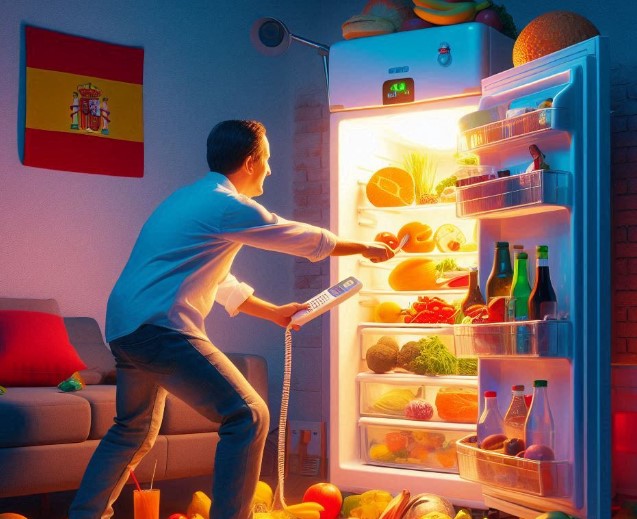Do you think your refrigerator or washing machine is to blame for high electricity bills? Think again. Lately, many of us have become more savvy about our energy consumption.
With rising bills and constant news reports about rising energy prices, it’s no wonder we’ve started diligently turning off the lights, unplugging chargers, and taking a critical look at our clothes dryers. We’re all trying to figure out which household appliances are driving up our energy costs.
So, if someone asks you, “Which appliance in your home uses the most electricity?” – what would you say? The refrigerator that hums around the clock? Maybe the washing machine that runs several times a week? The dishwasher? Or maybe that old vacuum cleaner you use on Sundays?
Most people are wrong about the biggest electricity consumer in the home.
It turns out the real culprit is hidden right in front of us – on your kitchen counter.
Surprise: It’s your induction cooktop.
Yes, that’s the induction hob. The smooth, modern surface where you cook your pasta, fry eggs, or heat up yesterday’s leftovers. It doesn’t look particularly threatening, makes no noise, and often doesn’t even seem to be working hard. But when it’s in use, it consumes more energy than almost any other appliance in your home.
The biggest energy guzzler in the home might surprise you.
Most of us associate high energy consumption with appliances that run constantly, like refrigerators, or those that generate a lot of power, like dryers or heaters. But the induction hob is sneaky. It draws a large amount of electricity in short bursts, especially when all burners are in use at once or you turn up the heat to quickly prepare something.
Even if you only use it for 20 minutes here and there, those short bursts of use—day after day, week after week—quickly add up.
Why saving energy at home in Spain is more important than ever.
Why saving energy at home is more important than ever in Spain. Electricity prices in Spain have been rising for years due to global supply problems and political tensions. And while the headlines come and go, the high bills persist. Therefore, monitoring your energy consumption is no longer just about being environmentally friendly, but also about protecting your wallet.
Many people are already careful. They unplug at night, switch to LED bulbs, and try not to overuse heating or air conditioning. But the kitchen—especially the cooktop—often goes unnoticed. It seems so mundane and necessary that we forget how much energy it uses unnoticed.
How to cut energy costs without giving up cooking at home.
Smarter cooking habits = lower bills.
You don’t have to give up your induction cooktop—but a few small changes can make a noticeable difference:
Use lids on pots and pans so food heats up faster and stays warm longer.
Try using the cooktop in batches so you have to turn it on less often.
Turn off the heat a minute or two before the end of the cooking time and let the residual heat do the work.
You might not want to use full power all the time—medium heat often works well and also saves energy.
It’s also worth checking your electricity tariff. Certain usage times in Spain make it cheaper to cook at certain times of day, usually in the afternoon or late at night. If you’re flexible with your routine, cooking at the right times can save you money without having to change your menu.
What you need to know to lower your energy bill at home.
It’s easy to blame the usual suspects for high energy bills. But if you cook frequently—and especially if you love a good stir-fry or a bubbling stew—it’s probably your induction hob that’s making all the difference.
Being more intentional about how and when you use it can make the difference between a bill you don’t care about and one that worries you.
Next time you’re at the stove, practice




